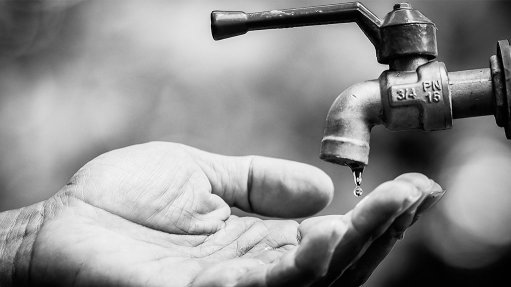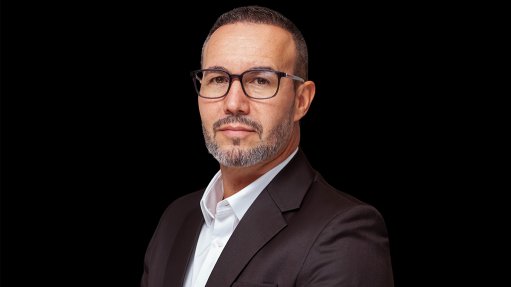The time to plan for Covid-19 was yesterday
Just as the going was getting good again, Africa faces another triple whammy: the coronavirus disease (Covid-19), a fresh global economic crash and plummeting oil prices.
The deadly Covid-19, which has been spreading throughout the world since its first outbreak in December in Wuhan, China, claimed its first life in Africa on March 8 in Egypt. Just as China reported a slowdown in new infection rates, the World Health Organisation (WHO) confirmed the first outbreaks in nine African countries: Algeria, Cameroon, Egypt, Morocco, Nigeria, Senegal, South Africa, Tunisia and Togo. Ironically, Covid-19 arrives when – as a measure of Africa’s economic and social transformation in 2020 – lifestyle diseases predominate as the leading cause of death.
In Africa, comparisons with Ebola are as inevitable as they are instructive. At the outset of the 2014 outbreak spreading across Liberia, Sierra Leone and Guinea, the virus was unknown outside the Democratic Republic of Congo (DRC) and Uganda, except that it was highly contagious, with high mortality rates. It took 18 months of energetic local and international response, and over 9 000 lives, before it was brought under control. Businesses including Rio Tinto and Tullow Oil closed down their local operations but it was six months before governments started systematically isolating whole villages and closing schools. In the end, it was mainly the cooperation between frontline local health and community workers and international nongovernmental organisations working with governments that successfully contained it in the Gulf of Guinea States and ended it. Who can forget Nigerian physician Ameyo Adadevoh, who put Patient Zero, Liberian Patrick Sawyer, in quarantine on his arrival in Nigeria, despite pressure from the Liberian government? Her determination, supported by the Lagos state government, prevented Ebola from spreading to populated Nigeria – and cost her life.
Covid-19 is different. Carriers are asymptomatic for 14 days, but the Ebola learning is relevant. In affected countries, Covid-19 has probably gone beyond the ‘containment’ phase and governments will need to step in to prevent it from spreading. A colleague in Cairo says that, while the military regime denies the scale of the outbreak, social media is awash with images of very ill people in low-income suburbs. In Egypt, 40% of the population of 100-million rely on food stamps or survive on daily wages from subsistence jobs. Preventing people from gathering and spreading the virus involves more than banning Friday prayers at mosques.
Some governments have taken action haphazardly. Angola has banned Italian passport holders from entering the country, but not Angolans returning from holiday in Italy. Kenya has banned all international conferences for 30 days. Similarly, Morocco has banned gatherings of more than 1 000 people in confined spaces. In Namibia, some 20 Chinese nationals working for a granite mine were quarantined on February 19 as a precautionary measure. Both Kenya and Namibia have set up several isolation facilities.
Many of the necessary measures are in place, implemented to stop Ebola. Many airports have body-heat scanners. Customs and health officials are used to tracking where travellers are coming from. Public awareness programmes are easy to relaunch: throughout 2014 and 2015, West Africans were encouraged to wash hands assiduously, not to embrace, and not to shake hands. The common greeting became a forearm across a chest from right to left. Strict hygiene and cleaning to stop the virus from entering mines, factories and farms enabled some companies to maintain basic production. Some mines, like those in the Gulf of Guinea or eastern DRC, are prepared, having gone through Ebola crisis management planning. Others are not.
Companies with large labourforces – especially mining and agriculture – are vulnerable. Despite being in remote contained areas, mines often have large numbers of workers living in close proximity to one another, eating in communal canteens and socialising in adjacent villages. A high instance of HIV infection is common, reducing immunity to infections. Flower farms in Ethiopia and Kenya have as many as 600 people working in confined, sometimes badly ventilated, spaces. There is currently little incentive from the margins within the industry or from governments to improve these conditions.
As with Ebola, the impact on affected economies is likely to be acute. Key to recovery was sustained financial support from the International Monetary Fund (IMF) and the World Bank. In 2015, long-term growth trends in the Gulf of Guinea went in reverse. Sierra Leone’s growth rate dropped from 11% to –2%. Tourism and travel are down continentwide: Jeune Afrique Media Group has cancelled its 2020 Africa CEO Forum and more bans on international events are likely. South African President Cyril Ramaphosa warns of a national crisis and Moody’s has already cut the embattled South African economy’s growth forecast from 0.7% to 0.4% for 2020 in response to Covid-19. Nigeria’s Finance Minister, Zainab Ahmed, is set to review the country’s Budget because of the impact of the virus on global oil demand. The United Nations Food Programme says Africa risks “absolute devastation” if wealthy nations do not step up aid. Africa will need its full share of the $50-billion support the IMF has made available.
Learning from Ebola, to be effective, communities, governments and business need to take urgent, thought-through measures to stop the spread of the virus. Although China’s action to contain the spread of Covid-19 failed, its subsequent concerted action to shut it down has had success in limiting its shelf life to three months and provides a model for other emerging-market countries. For companies operating on the continent, the time to plan for it was yesterday!
Article Enquiry
Email Article
Save Article
Feedback
To advertise email advertising@creamermedia.co.za or click here
Announcements
What's On
Subscribe to improve your user experience...
Option 1 (equivalent of R125 a month):
Receive a weekly copy of Creamer Media's Engineering News & Mining Weekly magazine
(print copy for those in South Africa and e-magazine for those outside of South Africa)
Receive daily email newsletters
Access to full search results
Access archive of magazine back copies
Access to Projects in Progress
Access to ONE Research Report of your choice in PDF format
Option 2 (equivalent of R375 a month):
All benefits from Option 1
PLUS
Access to Creamer Media's Research Channel Africa for ALL Research Reports, in PDF format, on various industrial and mining sectors
including Electricity; Water; Energy Transition; Hydrogen; Roads, Rail and Ports; Coal; Gold; Platinum; Battery Metals; etc.
Already a subscriber?
Forgotten your password?
Receive weekly copy of Creamer Media's Engineering News & Mining Weekly magazine (print copy for those in South Africa and e-magazine for those outside of South Africa)
➕
Recieve daily email newsletters
➕
Access to full search results
➕
Access archive of magazine back copies
➕
Access to Projects in Progress
➕
Access to ONE Research Report of your choice in PDF format
RESEARCH CHANNEL AFRICA
R4500 (equivalent of R375 a month)
SUBSCRIBEAll benefits from Option 1
➕
Access to Creamer Media's Research Channel Africa for ALL Research Reports on various industrial and mining sectors, in PDF format, including on:
Electricity
➕
Water
➕
Energy Transition
➕
Hydrogen
➕
Roads, Rail and Ports
➕
Coal
➕
Gold
➕
Platinum
➕
Battery Metals
➕
etc.
Receive all benefits from Option 1 or Option 2 delivered to numerous people at your company
➕
Multiple User names and Passwords for simultaneous log-ins
➕
Intranet integration access to all in your organisation


















